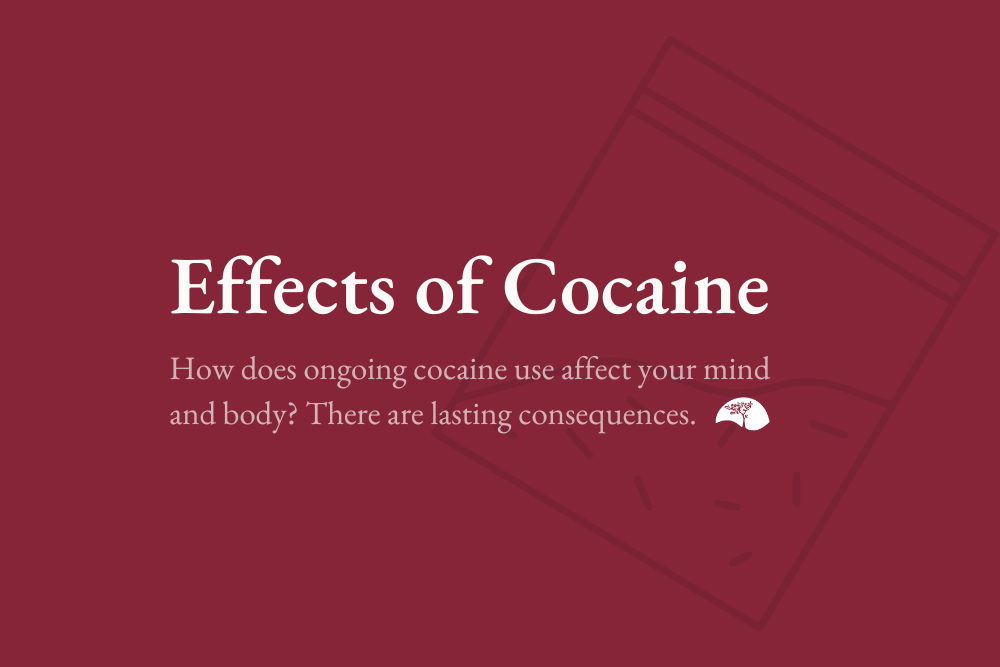Cocaine is a powerfully addictive stimulant that creates an energetic euphoria. When people take cocaine, they may feel more alert, talkative and sensitive to stimuli like sound and light. The drug creates these effects by flooding the brain with a neurotransmitter called dopamine.
Dopamine is a natural chemical messenger that plays an essential role in the brain’s reward system. With repeated use, cocaine hijacks this internal pleasure center, eventually making it harder for you to enjoy the things that usually make you happy. Ignoring formerly enjoyable hobbies in favor of drug use is one of the earliest warning signs of addiction.
How Cocaine Affects the Body
Once you become physically and emotionally dependent on cocaine, it will become a priority in your life, causing you to neglect relationships and responsibilities. As your tolerance builds, you’ll need to take larger doses of cocaine to achieve the same high. At the same time, if you try to stop using drugs, you’ll experience withdrawal symptoms like mood swings, insomnia, drug cravings and body aches. Withdrawal happens when your brain is so used to having cocaine in its system that it can’t self-regulate without the drug.
The longer you use cocaine, the more likely you’ll be to develop health problems like cardiovascular disease, respiratory issues, memory loss, convulsions, sexual dysfunction and mental health disorders. People who snort cocaine may experience frequent nosebleeds and sinus infections, while those who inject it are at higher risk of diseases like hepatitis C and HIV from reusing and sharing needles.
You can also overdose on cocaine if you use more than your body can handle. Cocaine’s potency often varies widely from one dose to another, since dealers may blend the drug with additives or fillers like fentanyl to increase their profits. A cocaine overdose can lead to potentially fatal complications like a heart attack, stroke or seizures.
Physical and Mental Health Effects of Cocaine Use
Long-term cocaine users are more likely to have high blood pressure, blood clots, chest pains, seizures, brain shrinkage and lung infections such as pneumonia. They are also in danger of developing an addiction or a dual diagnosis of a substance use disorder and a co-occurring mental illness.
Quitting cocaine can reverse some of the damage and help you recover your physical and mental well-being, but withdrawal symptoms can be uncomfortable enough to cause a relapse, no matter how determined you are to stay clean and sober. Medically managed detoxification in a clinical setting is essential for ridding your body of all traces of cocaine. Experienced health care professionals will monitor your symptoms 24/7 until you are stable enough to move into the next phase of substance use treatment.
Accredited Drug Rehab in California
As part of the Hemet Valley Medical Center campus, Hemet Valley Recovery Center and Sage Retreat offers hospital-level support services for people with the disease of chemical dependency. Participants in our medically supervised detox program receive clinically excellent care from credentialed professionals. After completing detoxification, you can move into our residential treatment program, where you will learn the skills that support long-term recovery.
For more information about what we offer and to verify your insurance coverage, please reach out to us today.


